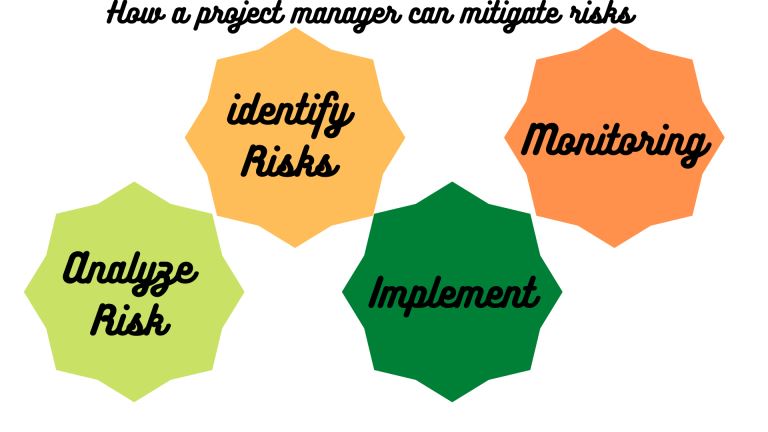Project Manager: Why You Need To Hire One
You don't need much convincing to hire a project manager; the reasons in this article will be enough. Many people don't know why they need a project manager, so this article will greatly help you. Read on to learn more about why you should hire a project manager.
There are several reasons why you need to hire a project manager; communication and accountability, mitigating project risks, increasing customer satisfaction, managing budgets and timelines, control, organization, knowledge, and experience, iterating on your success, and improving relationships with stakeholders.
Read on to learn more about the tools of project management.
Project Manager: Why You Need To Hire One
The ability to handle projects effectively has become crucial in the modern workplace. The requirement for qualified project managers has been steadily increasing due to widespread use. The likelihood that a project will be successful, profitable, and completed on schedule will increase by employing a qualified project manager.
Reasons why you should consider hiring a project manager.
1. Control
Project managers monitor, assess, and make corrections continuously throughout a project. This aspect of project management is crucial since it ensures that the quality of everything supplied continually meets expectations. The use of control tools and techniques throughout the process enables verification that the project complies with quality standards and provides a foundation for remedial action.
2. Communication and Accountability
Ensuring open communication channels is an essential element of the project management process. Project managers facilitate communication between project team members and the larger company-this makes it possible to ensure the project is moving in the right direction. The presence of a central communications person improves accuracy and reduces confusion.
3. Increase Customer Satisfaction
Each job is finished to the client's specifications. The total happiness of your clients will rise dramatically if your project management team manages to stay on target and produce a high-quality product or service.
4. Organization
The project team's structure is established through project management to enable the successful execution of the plan developed during the planning phase. The project manager creates steps and task lists.
To guarantee that all components are moving through the workflow promptly, project managers know where each project piece is and where it is going next. Project managers are skilled at balancing several reports, deadlines, tasks, risks, meetings, and QA issues; you won't have to.
5. Mitigate Project Risks
Various risks, including costs, schedules, and performance, are present in every project. Project managers serve their organizations by being excellent at analyzing, communicating, and prioritizing project risks. You can reduce risks before they have long-term adverse effects on the project by assembling a committed project management team. Below are ways you can mitigate risks:
6. Iterate On Your Successes
Your team's best practices can be expanded and scaled up with project management. By analyzing data and lessons learned from past initiatives, you can determine where your team is doing well and where there is space for development. You can set up and keep track of custom benchmarks by monitoring your KPIs to see how your team is doing across all of its projects.
7. Manage Budgets and Timelines
Organizations find it more and more challenging to finish a project successfully due to strict budgets and deadlines. At their heart, they are interconnected, so if any small component threatens one, the other will follow. The project manager can better manage strict budgets and constrained schedules by juggling resources and supplies while managing their workforce.
8. Knowledge and Experience
The insights gathered from years of working on projects identical to yours are applied to your project by seasoned PMs. Additionally, they will locate knowledgeable vendors who can accomplish jobs efficiently and affordably, avoid common project blunders, and suggest cost-cutting measures.
9. Improve Relationships With Stakeholders
Working with many stakeholders, including executives and investors, as well as suppliers and vendors, can frequently make it seem like many cooks are in the kitchen. By establishing a core project management team, a business may better manage shared risks, increase communication with all parties, and enhance relationships with all stakeholders. To ensure that the project end accurately reflects the objectives, a project manager must be aware of the demands and interests of each stakeholder.
What are the tools of project management
Project managers need project management tools to aid a team, or an individual organize their work. It helps them manage their duties and projects effectively so they can succeed.
Below is an overview of project management tools.
1. Microsoft Project
Microsoft Project was developed to assist project managers with planning development, allocating resources, monitoring progress, and assessing work quantities. The MS Project offers an easy-to-use interface despite its seeming complexity. It is a well-valued piece of software that can significantly help your project succeed. It uses connections between the Tasks, Resource, and Calendar blocks to run all three of them. In essence, the program is a database with some fundamental automation features.
2. Critical path method(CPM)
Project managers make extensive use of CPM, which is a crucial tool. This is due to the tool's ability to monitor and evaluate the project's development continuously. It ensures that the team completes all of its ongoing initiatives on schedule.
3. Trello
The "kanban" idea of Japanese management, which entails constant observation of every stage of production, is the foundation upon which the Trello system is based. It is an excellent tool for everyday tasks and valuable for individual assignments and command directives. Below are the types of Trello:
| Type | What it's used for |
| Cards |
Cards represent all the activities you need for the job to complete |
| Lists |
Lists show the different stages of a project. |
| Boards |
The boards in Trello always make a project organized and moving forward. Different boards represent various projects or procedures. |
4. A Gantt Chart
All tasks assigned to your project scheduled for overtime are shown in a Gantt chart. Projects of various kinds and sizes are planned using them. They are a fantastic tool for outlining the tasks that must come to completion on a particular day. They also display the duration in a single, straightforward manner.
5. GanttPro
An application based on Gantt charts is called GanttPro. You may create tasks, assign them to team members, set deadlines, and see the proportion of accomplished tasks compared to expected timeframes while planning and managing your projects online. By granting specific individuals access to see or update, you can distribute the Gantt charts, you've developed to the team and your clients.
6. Logic Network
A logic network shows the order of tasks completed during a project across time. Which activity logically comes before or after another activity is demonstrated? To determine the project duration, you can multiply the time required by each task. Project managers can use this tool to pinpoint a project's milestones and critical path. You will better comprehend your project's dependencies, timeline, and workflow. Using this method, you can discover important details you might have missed.
7. Project Documentation
The information in these publications covers every aspect of the project. They were developed to clear up any misunderstandings regarding the project and to avoid disagreements among the stakeholders concerning its progress.
What are the Essential Project Management Skills?
As brands strive to deliver complex projects in hyper-competitive markets, the need for professional project manager increases. The table below shows some of the skills necessary for project management:
| Skill |
Function |
| Communication |
Project managers should have great communication skills to convey information to clients and team members. |
| Organization |
To ensure processes run smoothly and in line with your organization's goals. |
Time management |
A great project Manager should meet all the set deadlines and deliver as expected. |
Team management |
A project manager should bring your team together and lead them in one direction. |
| Budget management | Come up with a viable project and follow it throughout the cycle. |
Conclusion
Regardless of the task, putting together a project management team can assist in guaranteeing your upcoming endeavor. Your project management personnel must continually be upskilled as the need for project management increases. Find the tools, materials, and training programs your group requires to stay current and benefit from project management. You can reach out to Guru Solutions for quality Staffing PM services.













